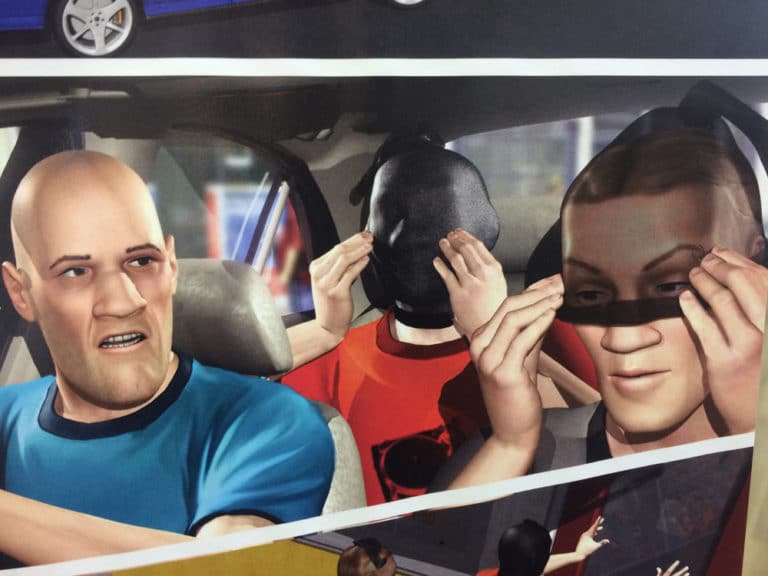Chinese police officers are wearing facial recognition sunglasses

China has just undergone its annual Spring Festival, also known around the world for being the biggest human migration on the planet with nearly 3 billion passenger trips made into the country between the end of January and the beginning of March. For the special occasion, the Chinese government provided police officers in megacities such as Zhengzhou, with a brand new AI technology device that is meant to facilitate the recognition of wanted criminals in no longer than 100 milliseconds.
As the travel rush for the Lunar New Year fills the nation’s train stations, officers have been wearing facial recognition sunglasses, the GLXSS ME, which is an AI appliance that enables the police to track suspect citizens even in the most crowded of locations. According to a report published on the Wall Street Journal, during the testing period of this technology, the Chinese police were able to capture seven suspects, and 26 individuals who were travelling with false identities.
Produced by the Beijing-based company LLVision Technology Co, which employs former masterminds from Google, Microsoft, Intel, and China Aeronautics, these glasses signal the next step in government surveillance. “GLXSS Force has been put into combat service. Many successful results are reported, such as seized suspects and criminal vehicles.” Reads the LLVision website. The mobile surveillance device, which is what the company calls these special specs, has certainly been proven successful in tracking suspects, but what about the unauthorised profiling of other citizens?
The specs are the most recent software introduced into China’s increasing AI-based social surveillance agenda, which is becoming particularly committed to facial recognition technologies that target citizens. In recent years, China has been investing millions into the development of tracking technologies, with the most obvious and striking example being its Social Credit System, a points system that gives individuals a score out of 800-900 for behaving as ‘good’ or ‘bad’ citizens. By using over 200 million CCTV cameras and rigid biometric surveillance, people’s moves and actions have been under the constant radar of AI devices, whose presence is becoming increasingly ubiquitous and government-owned.
The technology behind GLXSS ME is not particularly different from that of CCTV cameras, but it is refined: CCTV cannot reach and follow suspects everywhere, the images are blurry, and often by the time the targets are identified they might have already moved out of the field of vision of the camera. But, “By making wearable glasses, with AI on the front end, you get instant and accurate feedback. You can decide right away what the next interaction is going to be.”, Wu Fei, the company’s chief executive, told the WSJ in an interview.
The smart sunglasses embody the intensification of state surveillance powered by the Chinese government in collaboration with facial-recognition companies such as LLVision, and how easily the technology can fall into the wrong hands. Make no mistake here. The increasing ‘safety’ of civilians comes at the very high cost of everyone’s privacy; the harder it is to get away with criminal activity is directly related to the day-to-day surveillance on the ground when it comes to China’s approach.
China’s serious tilt towards using facial recognition technology for security and surveillance purposes comes as no surprise, but this new product certainly adds a darker twist to the state of policing already active in the country. And although China is steps ahead in the AI race compared to Europe or even the U.S., every time a device designed to police citizens gets used by a government, everyone’s privacy rights become more vulnerable. And that is definitely the case with GLXSS ME.




